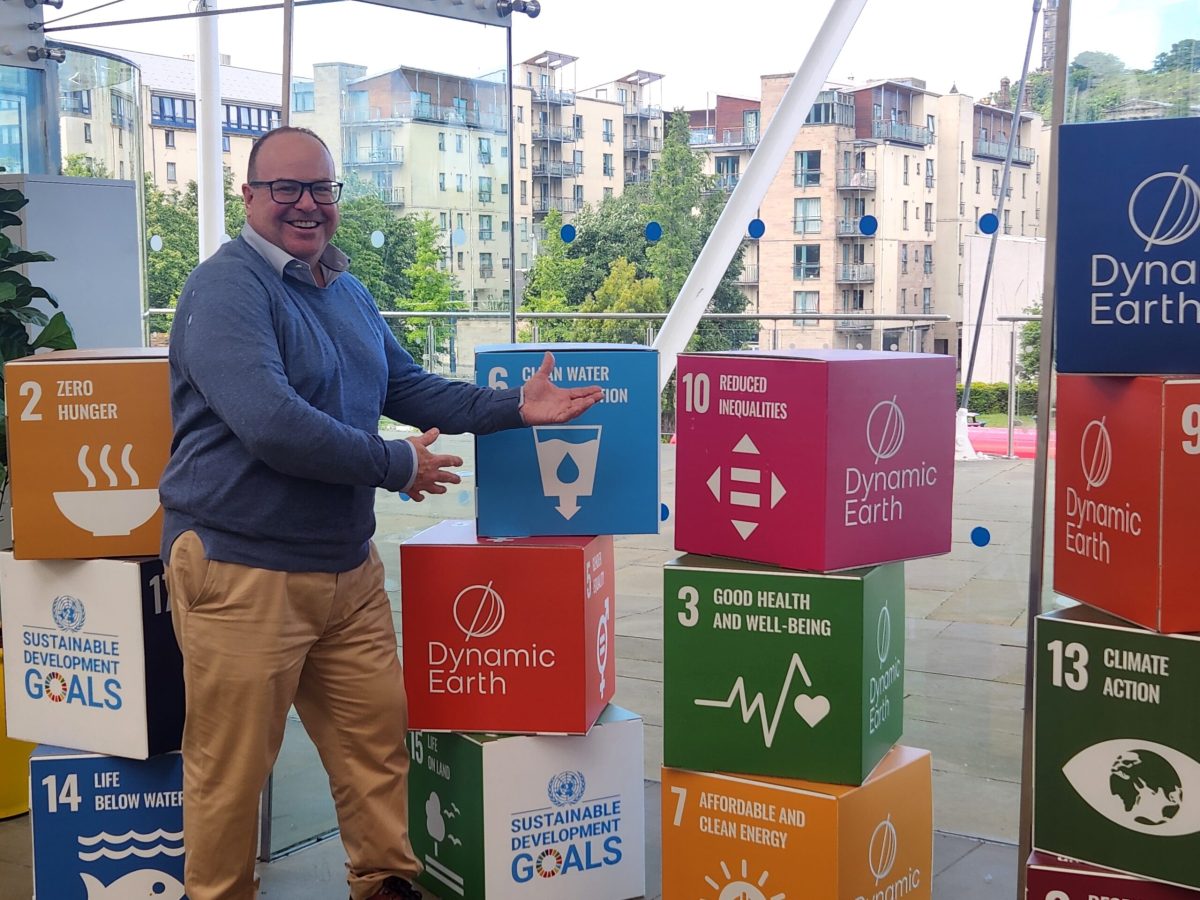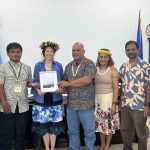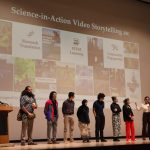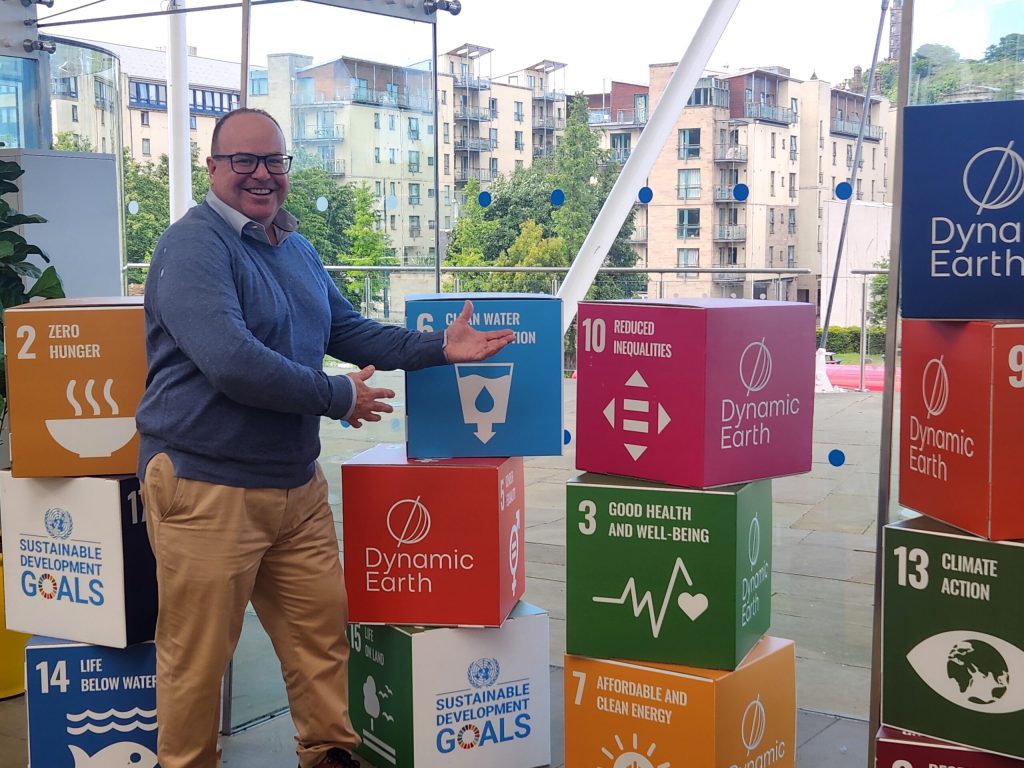
From June 2- 20, Jack Harris, an assistant teaching professor and Program Director in Sustainability in the Department of Human Ecology, is in Scotland meeting with academic and community partners, thanks to a Rutgers Global Grant to develop a study abroad program on “Scottish Sustainability.”
The 3-credit, 3-week course, to be launched in June 2025, will meet the experiential learning requirements of the School of Environmental and Biological Sciences and the Department of Human Ecology. This faculty-led course will explore Scottish sustainability using a comparative, cross-cultural perspective that highlights the multiculturalism and gender equity of Scotland.
According to Harris, “the intent and design of the program is to have students learn from people deeply engaged with problems of sustainability in their communities and regions. Students will explore community buyouts, renewable energy, sustainable food systems, local businesses, and urban sustainability projects. They will also meet with government leaders at the local and national levels to gain an understanding of the legal and institutional drivers of Scottish sustainability.”
Harris is fine-tuning multiple aspects of this upcoming study-abroad experience, including assessing transportation, housing and food options and accessibility across various locations across Scotland. He’s held several meetings with partners, including Fyne Futures at their community farm on Bute, and faculty and staff at UHI North, West and Hebrides, Scotland’s newest college connecting rural and island communities across the North, West and Outer Hebrides. He’s also planned meetings with partners at the University of Glasgow as well as several South Asian community organizations in Glasgow.
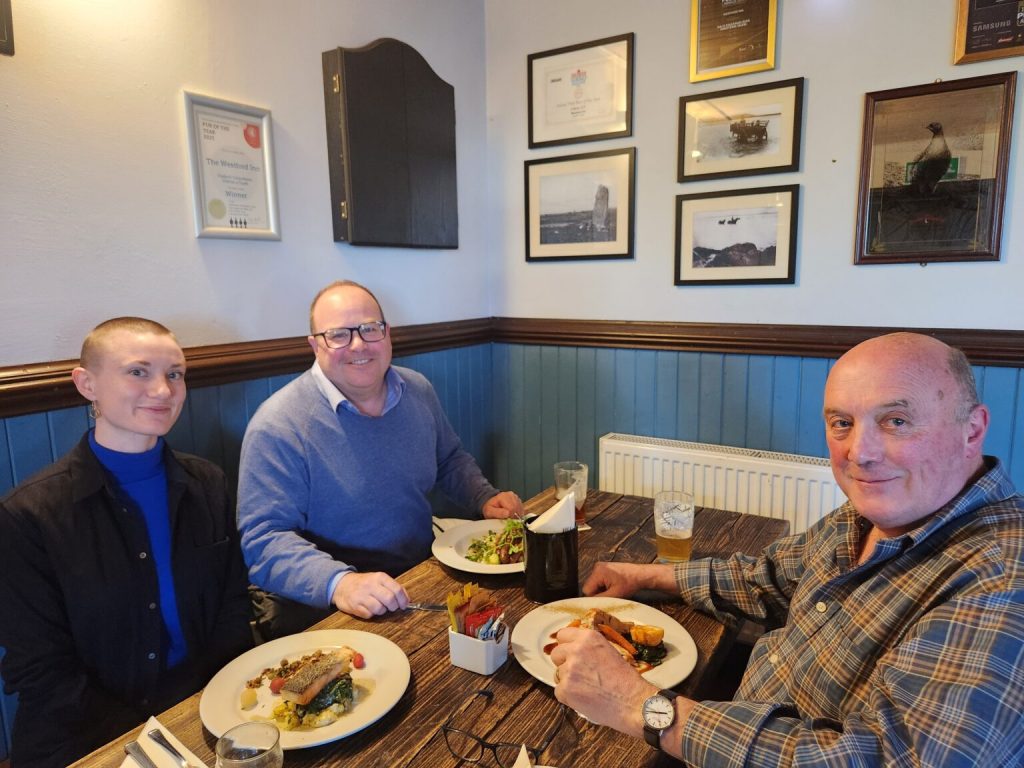
“I also had tremendous meetings with Historic Environment Scotland in Edinburgh at Holyrood Park and with Brigend Farms, the first community buyout in Edinburgh, and have nailed down the first week of the course.”
The student-abroad program that Harris has planned “is interdisciplinary and will appeal to students with diverse academic and pre-professional interests.” He sat down with SEBS/NJAES Newsroom to share some background about himself, the topic of ‘sustainability’ and why it matters today.
Tell us a bit about yourself and your career, including when you came to Rutgers.
I came to Rutgers in August of 2023 from the University of Illinois Urbana-Champaign, where I designed and taught a course in “Corporate Social Responsibility and Social Impact” and oversaw the Internship Program as a Visiting Assistant Professor. Prior to Illinois, I was at SUNY New Paltz as an Assistant Professor and Sustainability Faculty Fellow. I started my academic career at Northwestern’s Network for Nonprofit and Social Impact (NNSI) as a Research Associate where we completed one of the largest community network studies done, to date.
I made a mid-career switch to academia and earned my Ph.D. at Rutgers School of Communication and Information. My dissertation was a study of long-term recovery after disaster and the inter-organizational collaborations and local knowledge that make disaster recovery happen. Based on my eight years of field research following Hurricane Sandy, I published a book, Hyperlocal Organizing: Collaborating for Recovery over Time, which explores how disaster recovery is rooted in place and requires local knowledge and community networks to be effective.
What led you to this particular topic?
Multiple travels to Scotland over the last several years have introduced me to sustainability challenges as well as innovative solutions to sustainability in a country that faces energy and food challenges as well as recovery from rapid deindustrialization and ongoing depopulation of rural areas. Scotland struggles with being a constituent part of the United Kingdom – one that voted against BREXIT – while trying to find solutions to economic wellbeing rooted in its own culture and history. Scotland also has a strong tradition of intellectual leadership in economic, social and ecological thinking, with Adam Smith and David Hume being the most well-known of the Scottish Enlightenment thinkers.
Patrick Geddes, known for his work in urban planning and sociology following his early career as a Botany professor at the University of Dundee, is an important Scottish thinker of the 20th century whose work has implications for understanding sustainability in the 21st century. Geddes emphasized the connection of space, place, and time with language and culture for understanding design, communities, and cities, and these interconnections are highly visible in different urban and rural environments across Scotland. Understanding interconnections between the social, economic and ecological is crucial for understanding sustainability challenges and solutions at all scales.
What broadly are you hoping to achieve and the next steps?
I am working to develop this course as a core part of our sustainability offerings at SEBS and Rutgers more broadly. In addition to learning about sustainability, students will immerse themselves in a different culture and become connected to urban, rural, and Island communities and the people there doing unique, creative, and equitable sustainability work designed to increase their communities economic and social wellbeing.
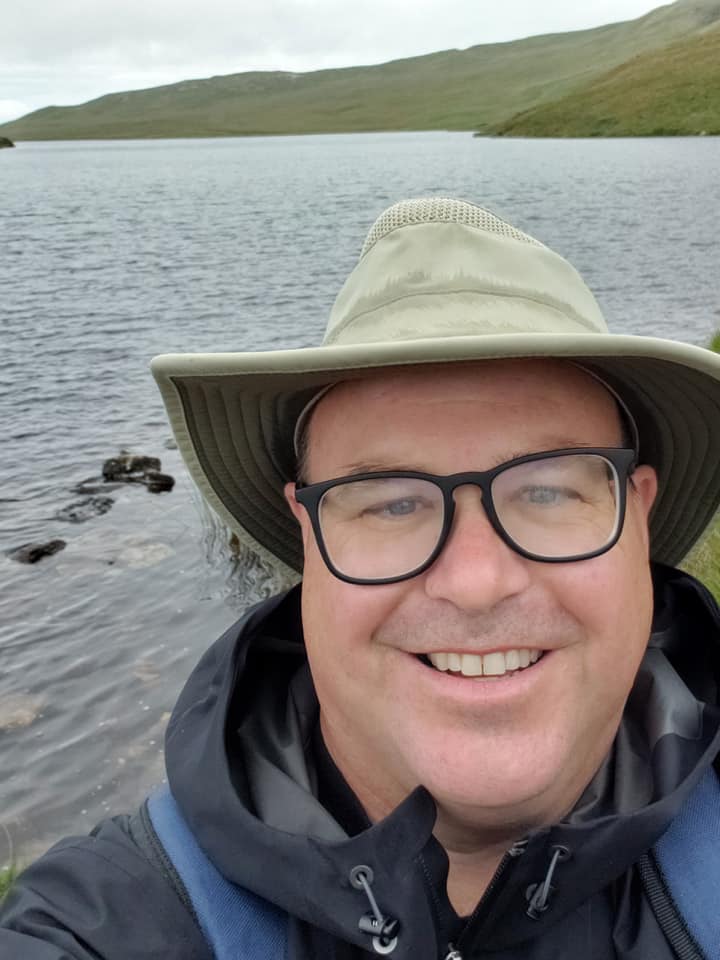
This study abroad program allows students to explore issues related to the UN Sustainable Development Goals, the Planetary Boundaries Framework and the Triple Bottom Line of People, Planet, and Profit, in practice, in the field. This program will place community engagement in a broader, comparative perspective for Rutgers students and enhance student success by building small, engaged cohorts willing to translate these experiences into independent and honors research projects, as well as international internships.
Why does this particular topic matter?
Scotland is a leader in sustainability practices and provides a unique, bounded case study through which to explore sustainability practices and policies rooted in culture, identity, institutions, and history. Since 1999 Scottish law and policy (independent of United Kingdom laws and policies) have focused on empowering people and communities to engage in sustainable activities that increase economic and social well-being at neighborhood, community, and regional levels.
Three Acts of Scottish Parliament – the Land Reform (Scotland) Act of 2003, The Community Empowerment (Scotland Act) of 2015 and the Islands (Scotland) Act of 2015 foster community agency, which, in turn, drives hyperlocal efforts to increase sustainability and wellbeing through community-based approaches to energy, housing, and sustainable food systems. Many of the sustainability challenges Scotland faces are uniquely rooted in its history and culture and the country provides a unique, bounded case through which to explore sustainability practices and policies rooted in culture, identity, institutions, and history. Scottish law and policy (independent of United Kingdom laws and policies) have focused on empowering people and communities to engage in sustainable activities that increase economic and social well-being through community-based approaches to energy, housing, art, culture, language, and sustainable food systems.
Understanding differences between place-based and solutions-oriented approaches to sustainability are critical for 21st century sustainability professionals working to build viable approaches that address current global challenges related to climate and wellbeing.
“Sustainability at scale” such as large wind farms and massive rewilding projects and their impacts on people and communities in Scotland are significant issues in Scotland as well and highlight connections between global solutions and hyperlocal realities. The Scottish Highlands also have a long tradition of women leaders and entrepreneurs making it an important place through which to explore intersections of gender and sustainability.
What inspires or motivates you?
Meeting new people, learning new things and travel. When I travel, I like to go off the beaten path a bit and talk with folks as much as I can. That travel opens the mind and broadens perspective is a bit of a cliché, but if you take the time to travel to parts unknown, as the late Anthony Bourdain phrased it, you will discover new ways of thinking and being and build stronger relationships. These “parts unknown” does not necessarily have to be distant and unfamiliar; they can be found in culture, communities and cities we think we already know.
This article was originally published by the SEBS/NJAES Newsroom.




